Key Findings
Strong majorities of all races agreed that “it’s important to discuss issues of race with other people” versus shying away from it.
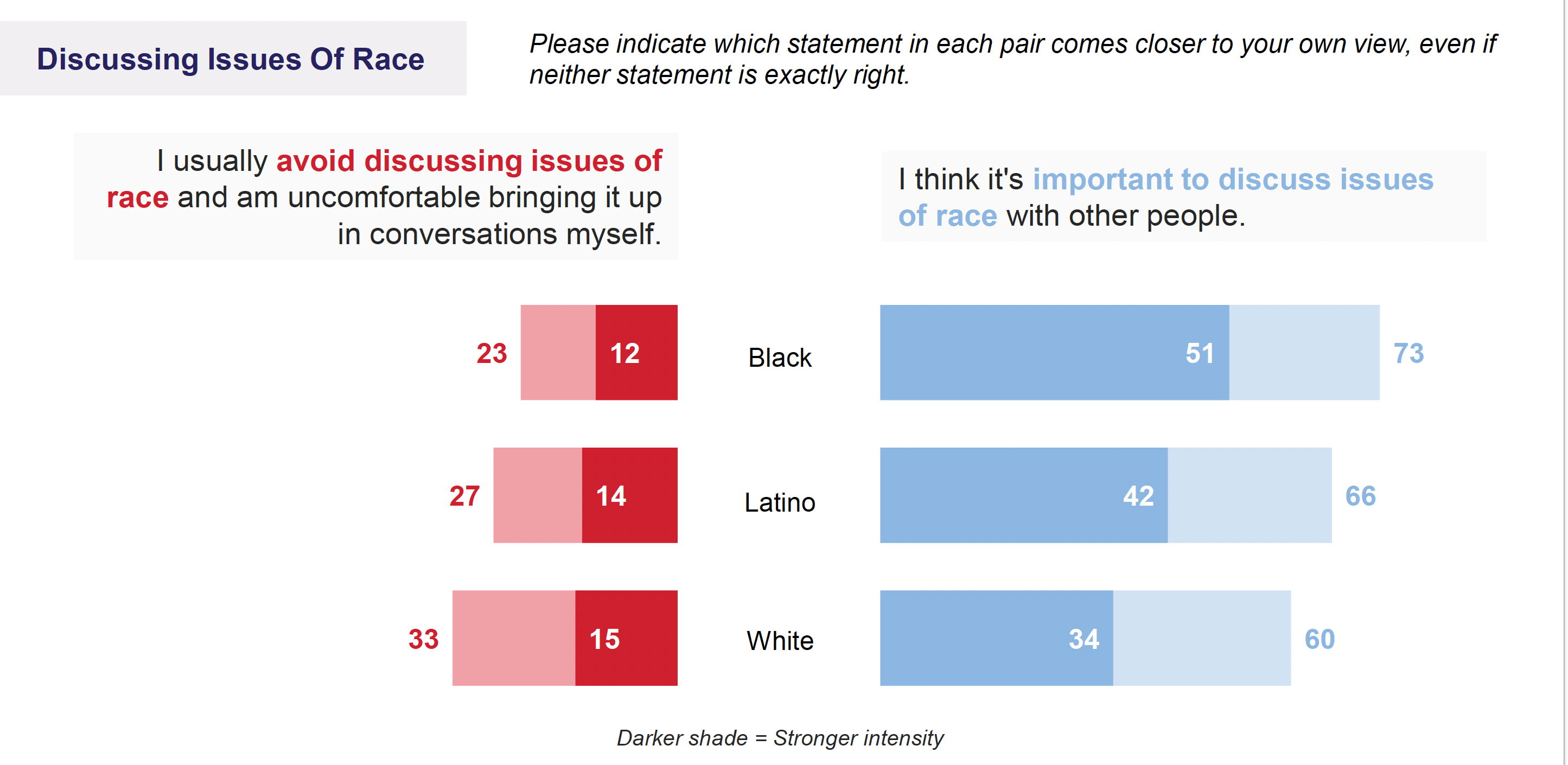
There remain clear racial divides in opinion regarding the causes of socioeconomic disparities in America, and the gap has widened in recent months on the topic of how race and poverty impact economic opportunity. Majorities of Black and Latino Southerners place blame for poverty on lack of opportunity rather than poor life choices while white Southerners are divided. Among white adults, the number choosing lack of opportunity has steadily declined from the 2020 peak and is now near pre-pandemic levels − driven mostly by a decline by white men who blame personal choices.

A growing number of white adults say too much attention is paid to race and racial issues in the US.
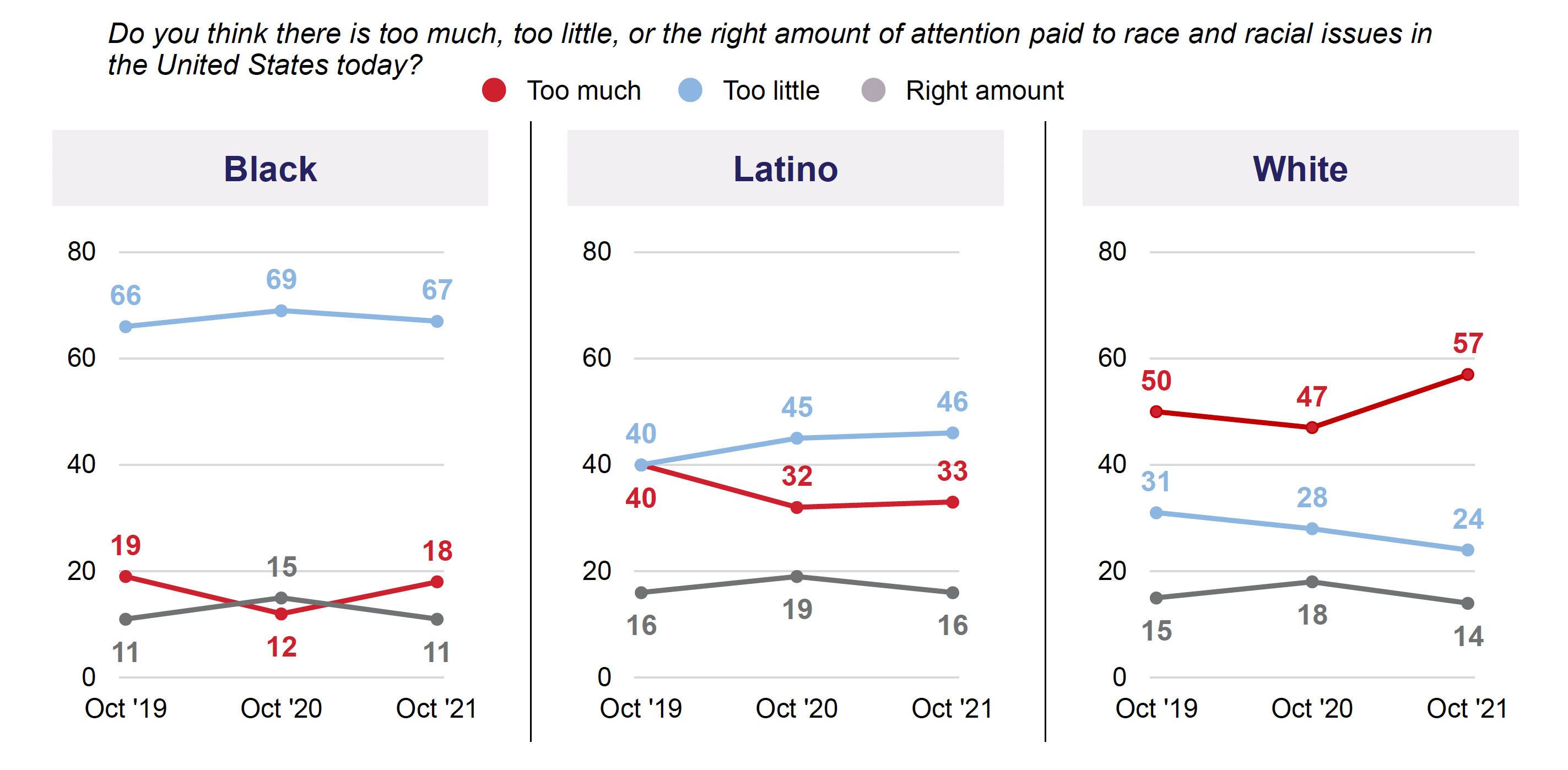
White respondents are now more likely to say they do not believe systemic or institutional racism is a major problem. Black and Hispanic respondents were more intense in their beliefs that systemic racism is a major problem, indicating a growing and deepening divide.
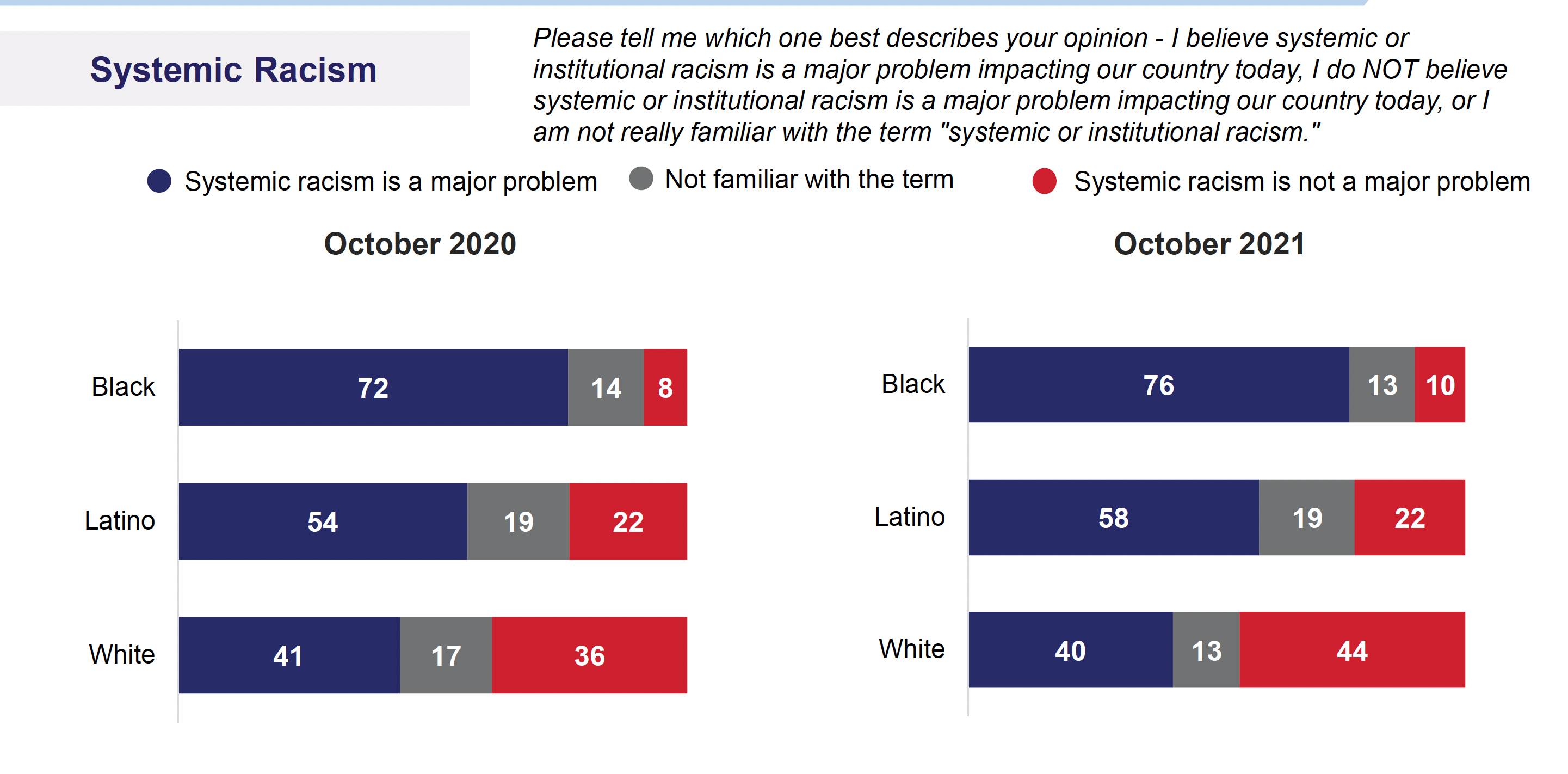
Pluralities of White and Latino adults support efforts to ban Critical Race Theory, even without understanding it. However, there are messages about teaching a complete, honest history that win overall racial groups by large margins.
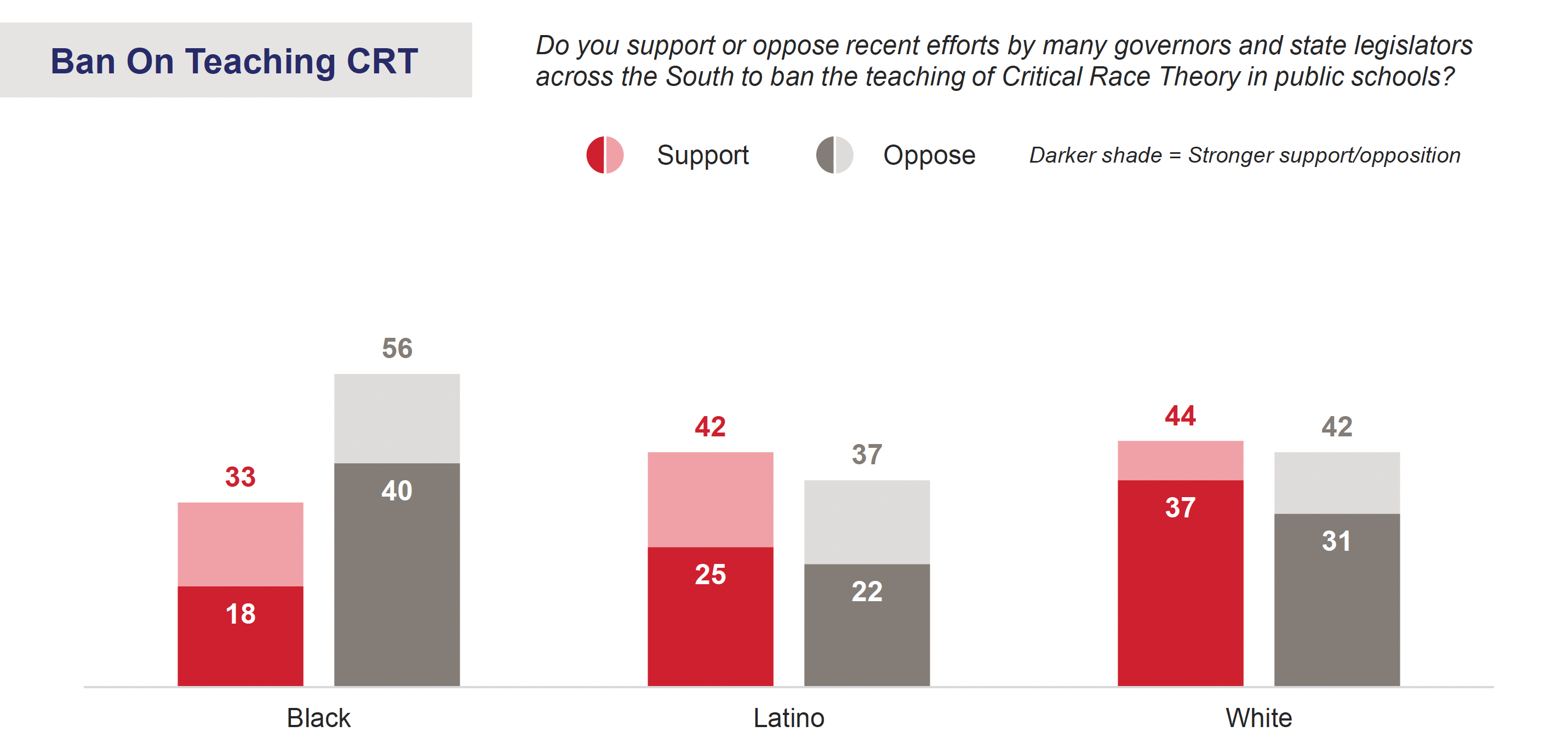
Race Relations & Systemic Racism
A majority of Black respondents (67%) and a plurality (46%) of Latino respondents think too little attention is paid to race and racial issues today in the United States. Meanwhile, over half (57%) of white respondents believe too much attention is paid to race and racial issues in the US, representing a shift from October of last year.
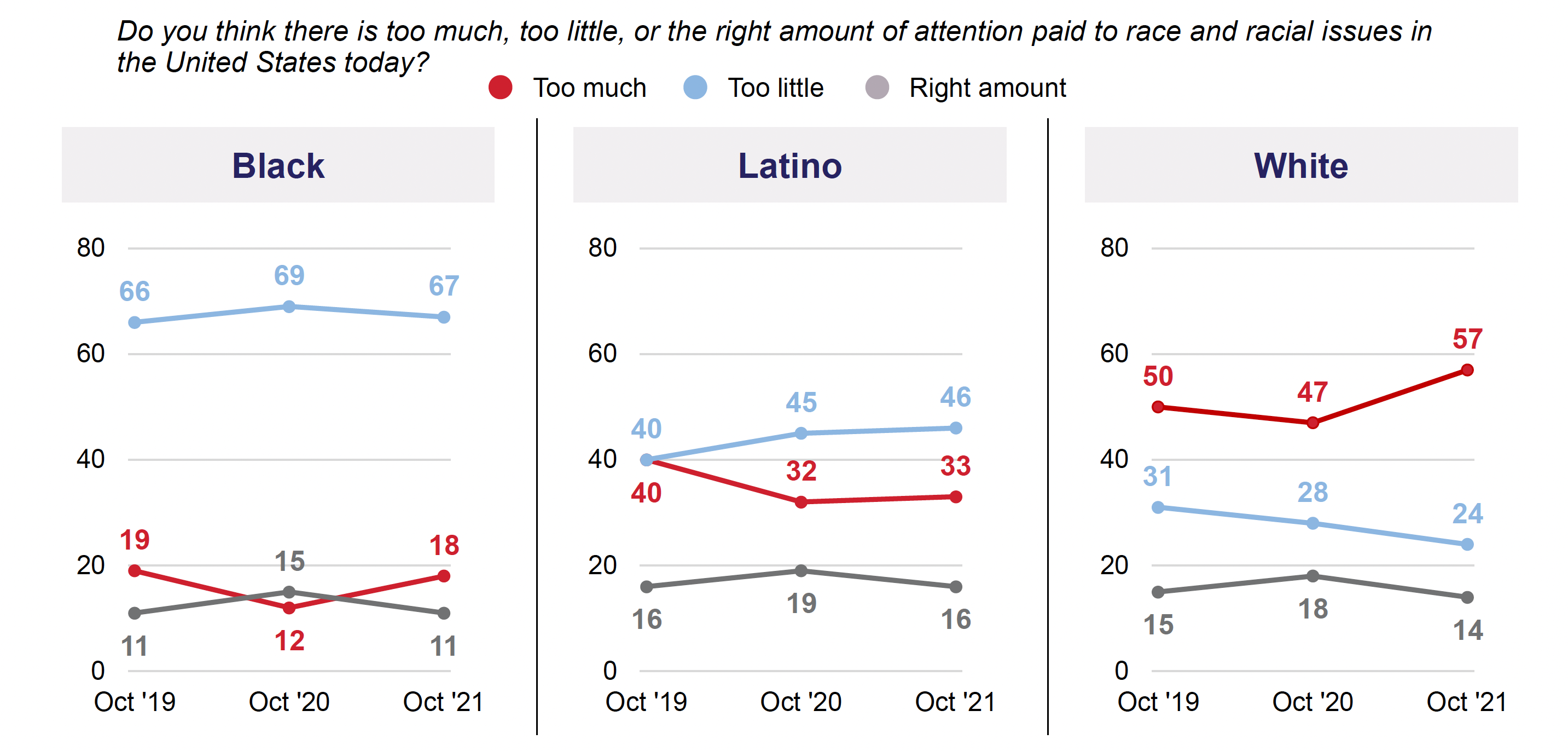
COVID-19 in the South
When asked whether efforts by the government and elected leaders in their state to prevent the spread of the virus had gone too far, were about right or hadn’t gone far enough, a plurality of both Black and Latino adults wanted leaders to do more to fight the virus’ spread, while 2-in-3 white adults say they’ve done enough or gone too far.
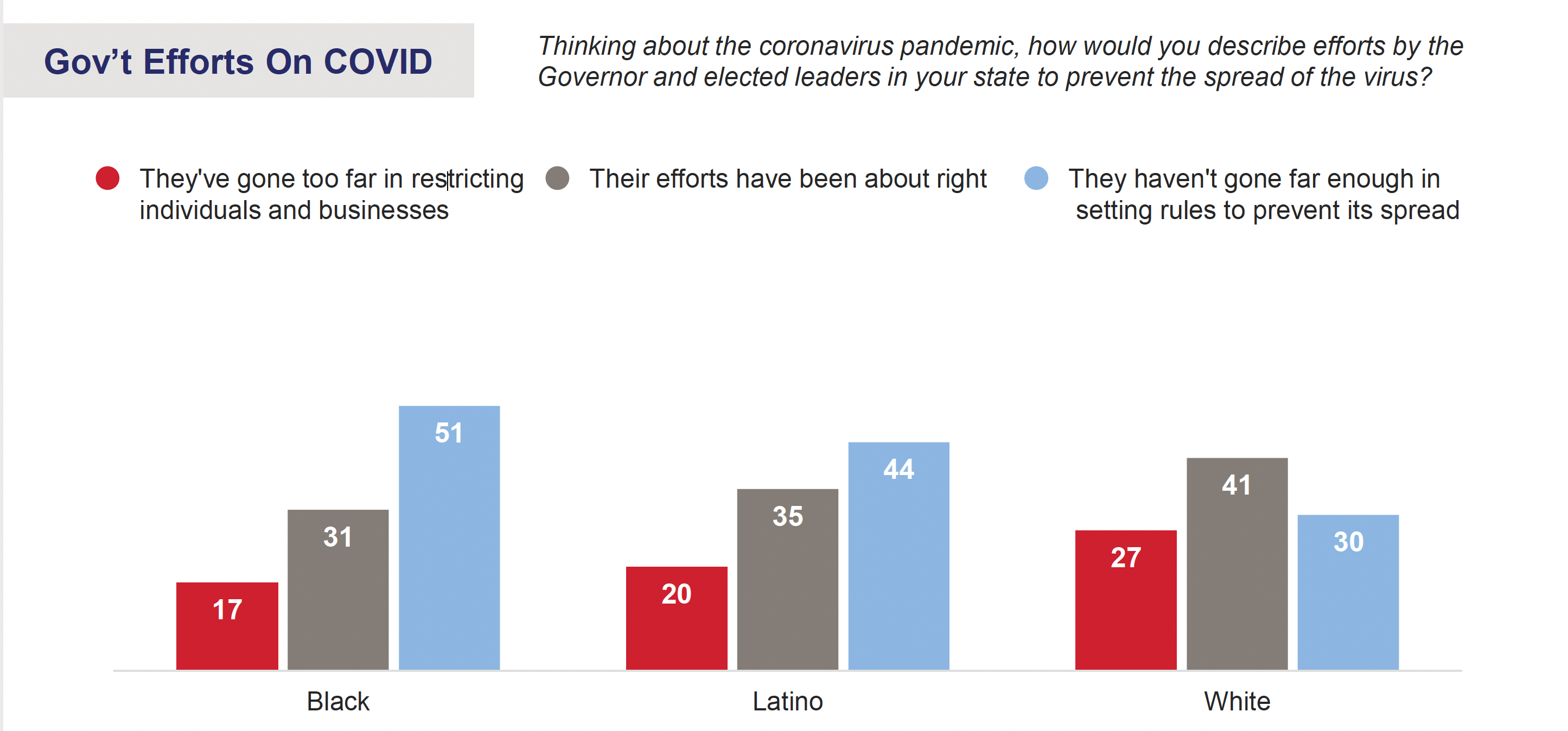
Adults across racial lines are now less likely to see racial disparities in the pandemic’s impact, with majorities of non-college-educated Southerners across racial lines rejecting the notion of a disparate impact.
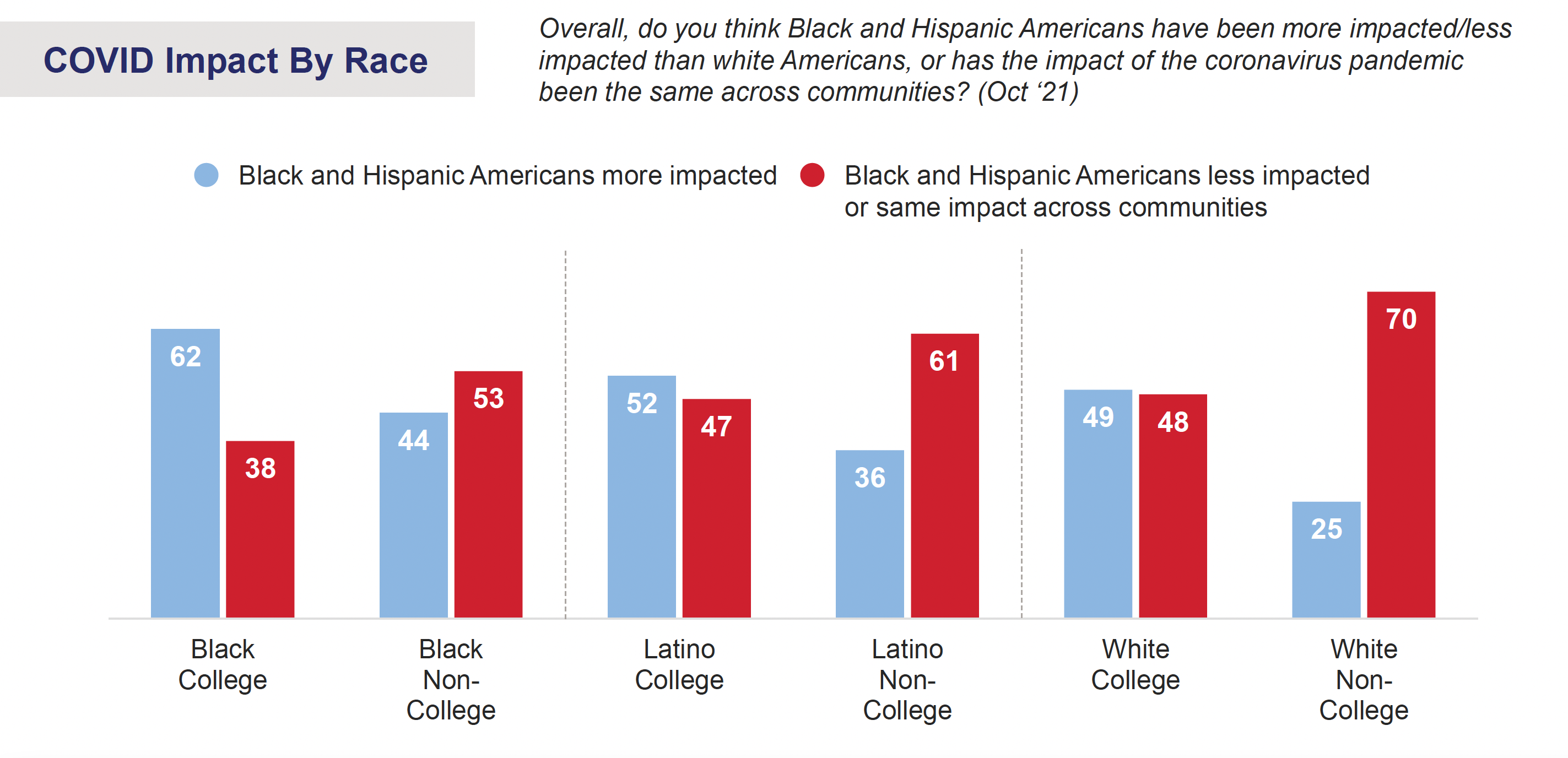
Vaccination status also plays a role in the perceptions of COVID-19’s impact, with unvaccinated adults of all races more likely to dismiss differences in impact by race.
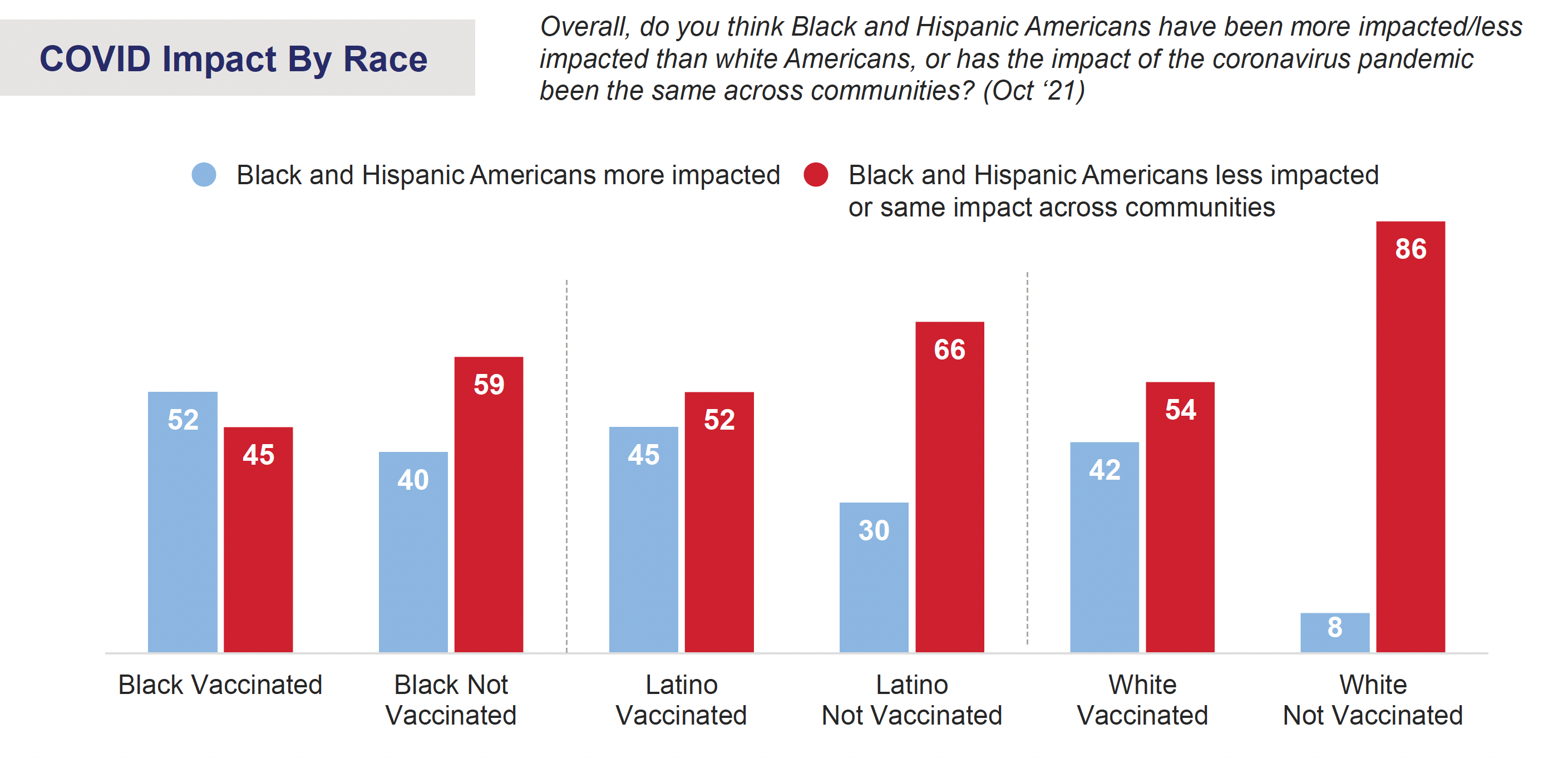
When it comes to economic recovery, Black adults and Latinas want to prioritize addressing historic inequities in our society and health care system, while white adults and Latinos want to return to the way things were as quickly as possible.
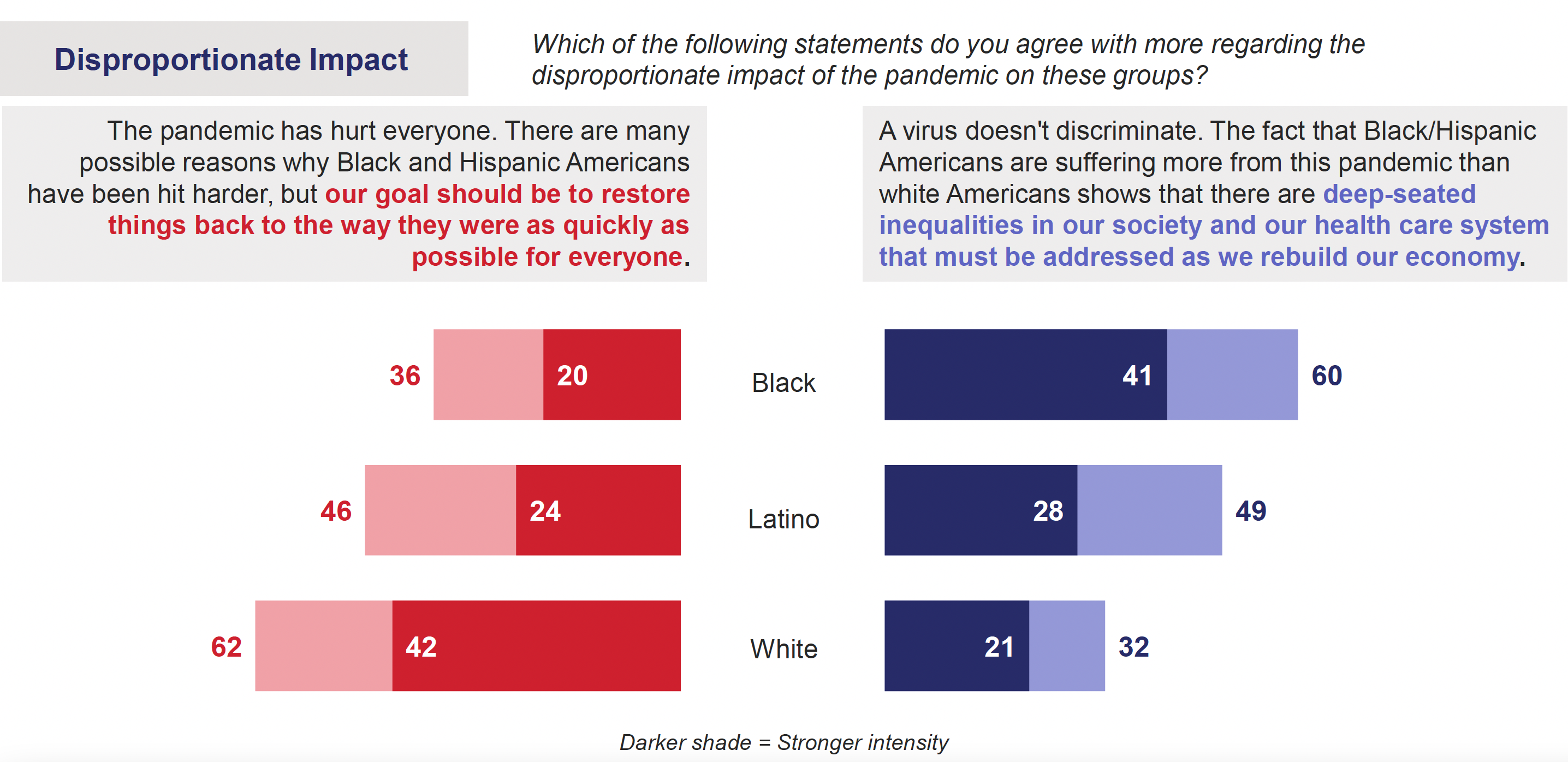
Critical Race Theory
When asked what comes to mind when you hear the term “Critical Race Theory,” the open-ended responses show how poorly-defined the public understanding of Critical Race Theory (CRT) is at this moment. A majority of Black adults describe CRT in positive terms, with white adults responding overwhelmingly negatively, and Latino responses more evenly divided.
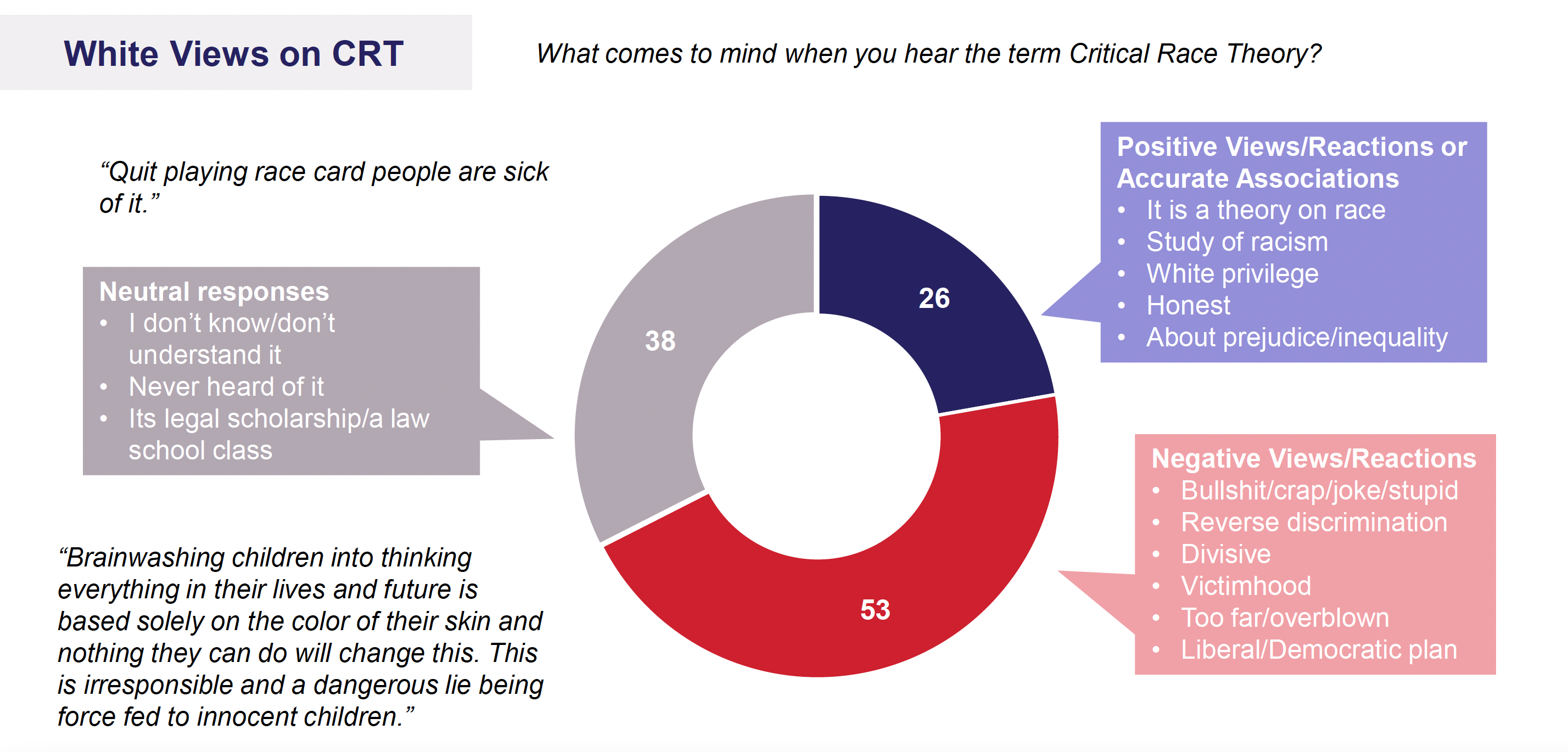
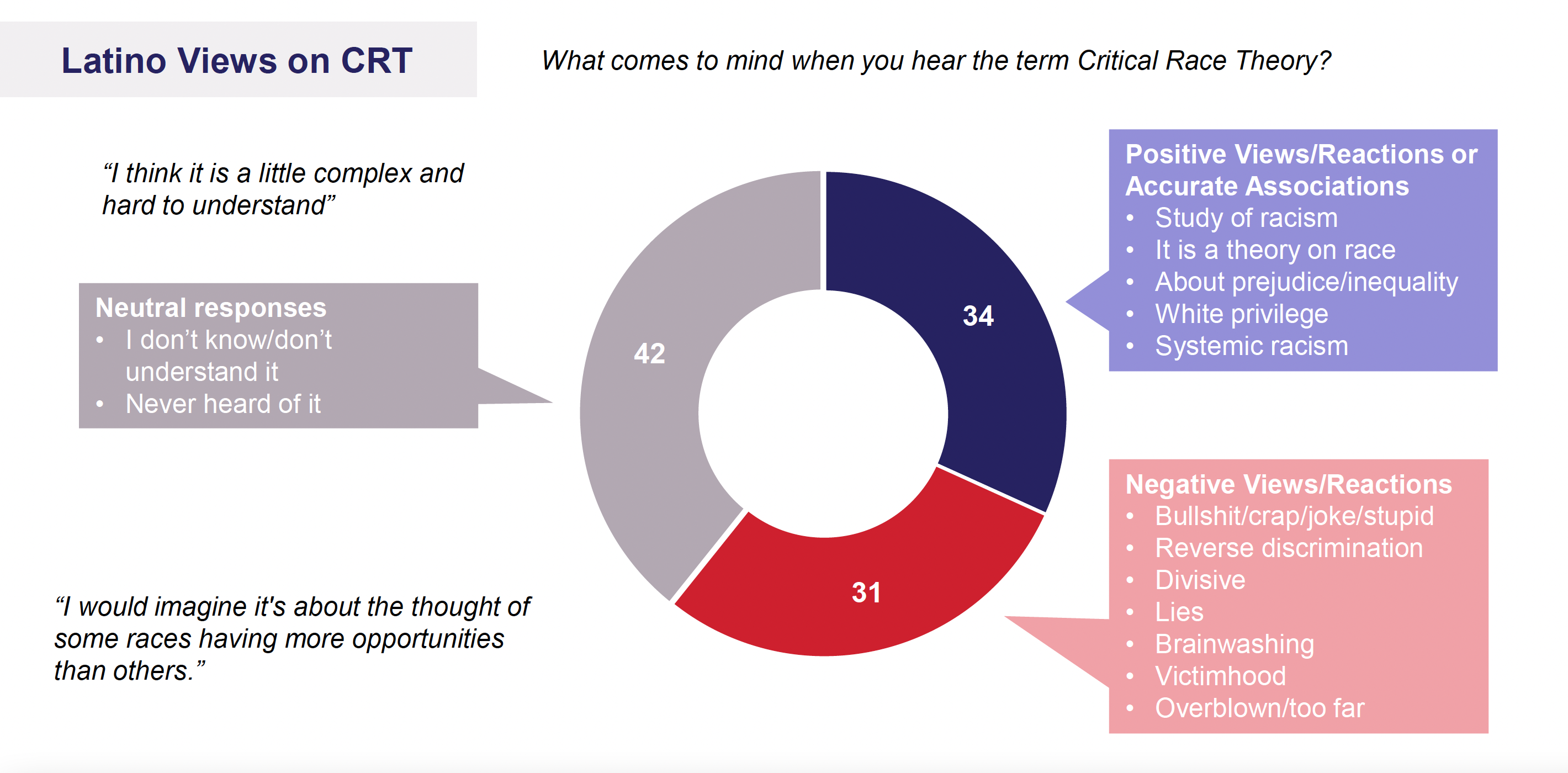
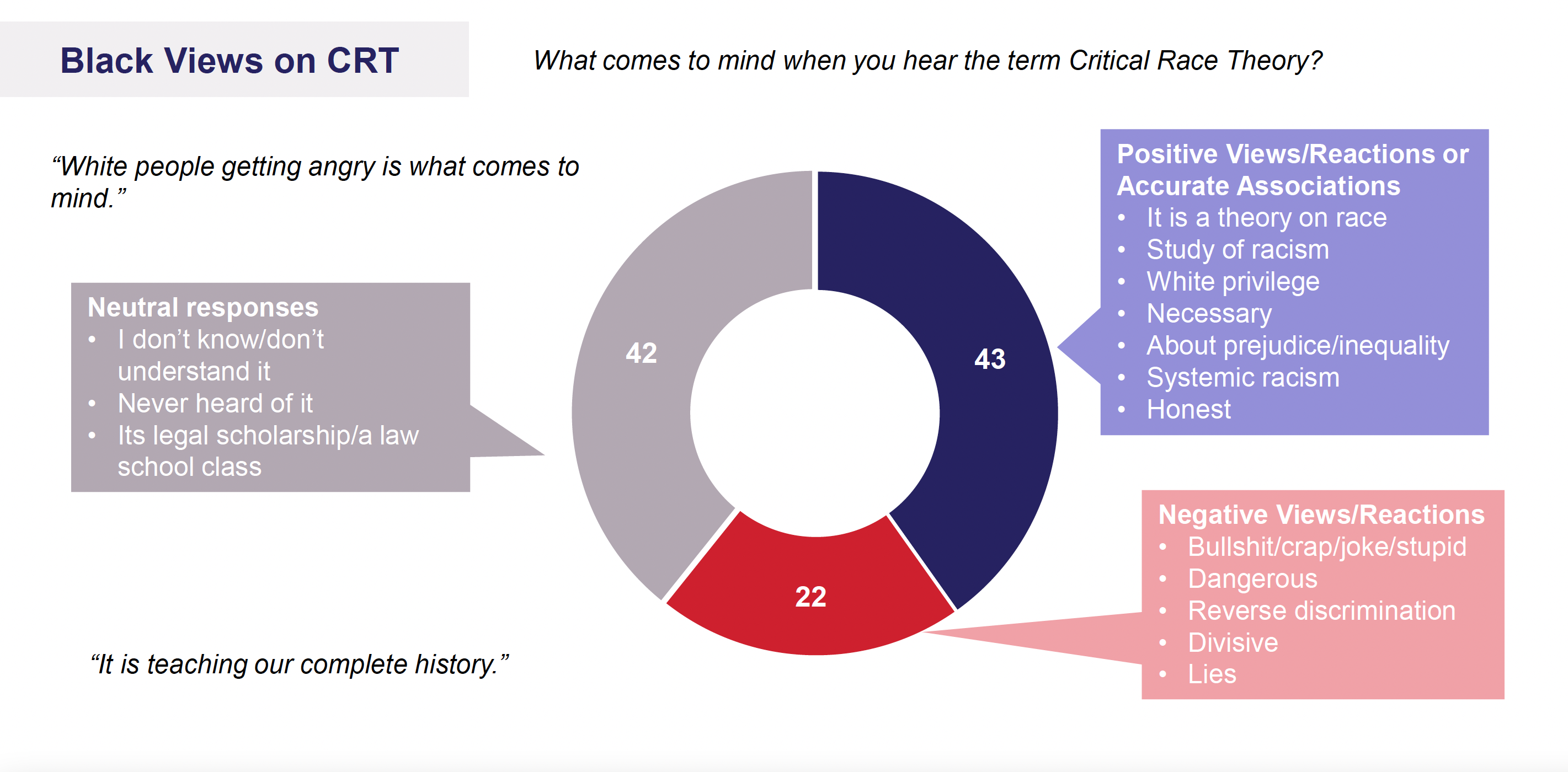
Pluralities of white and Latino adults support efforts to ban CRT, with white support driven largely by those over the age of 64. Fifty-six percent (56%) of Black adults oppose efforts to ban CRT, with 40 percent strongly opposed.
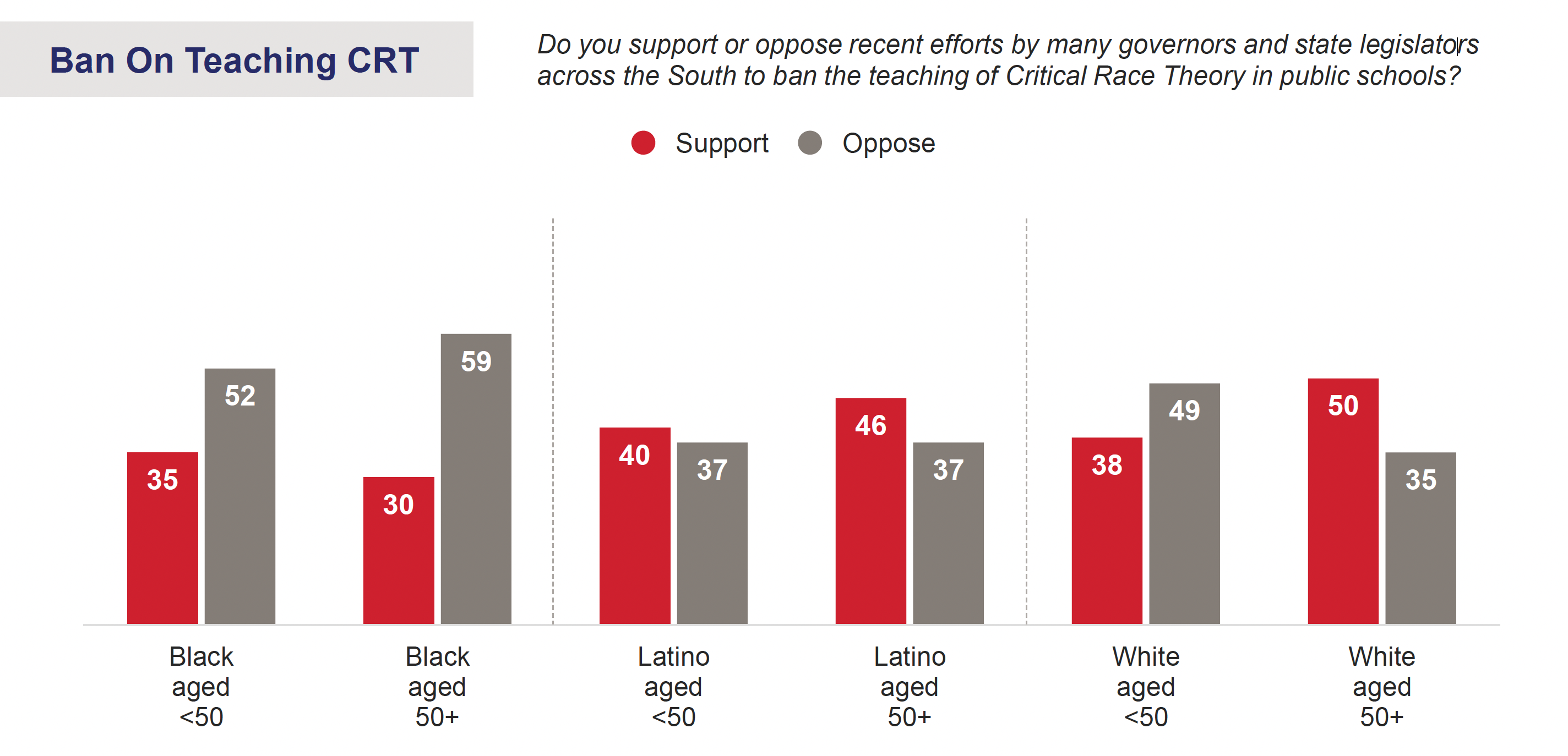
There is a clear way to message the importance of teaching complete and honest history, with majorities of all races saying “teachers should have the freedom to teach the honest, complete facts about historical topics like slavery and civil rights without being censored by politicians,” as opposed to “Those who want to teach Critical Race Theory in our schools are trying to further divide us by teaching kids to be ashamed of our country and to feel guilty just for being white.”
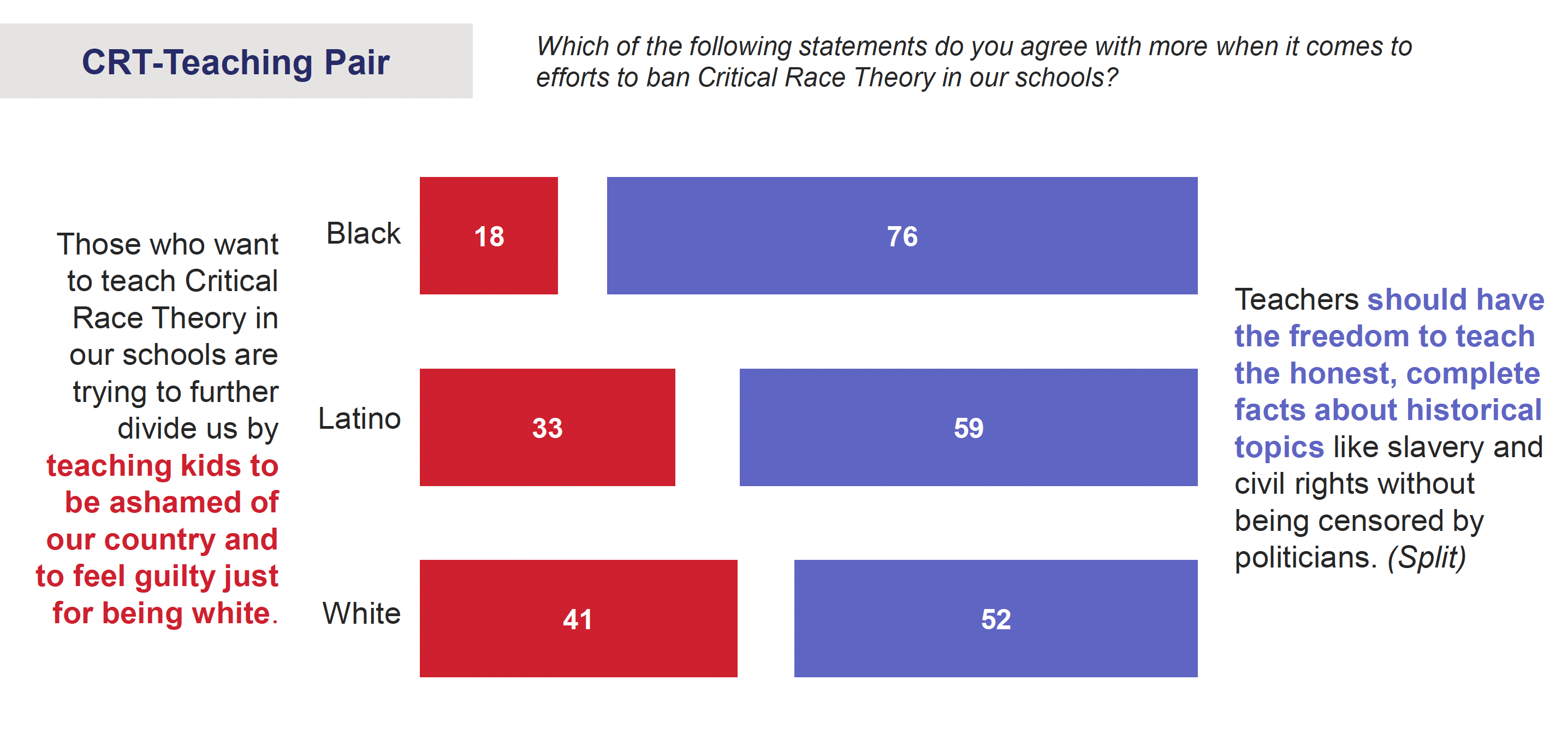
Using a southern lens to confront history was as successful with white Southerners, though the message performed slightly weaker with Black and Latino respondents.
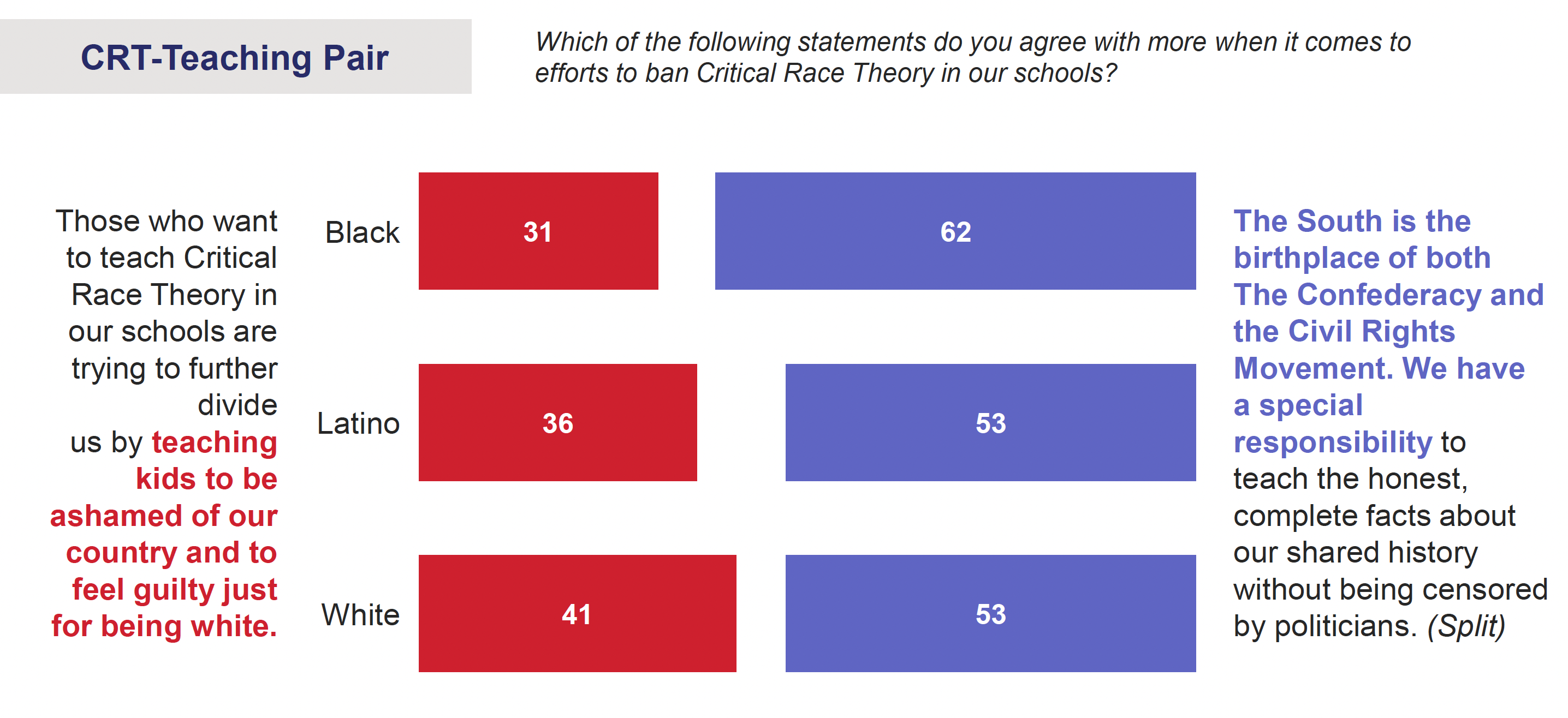
Voting Rights
There is general confidence in having a fair election, but Black Southerners, in particular, are concerned over ballot access.
Voter fraud concerns are greater at the national level than within the respondents’ home state, especially among white southerners.
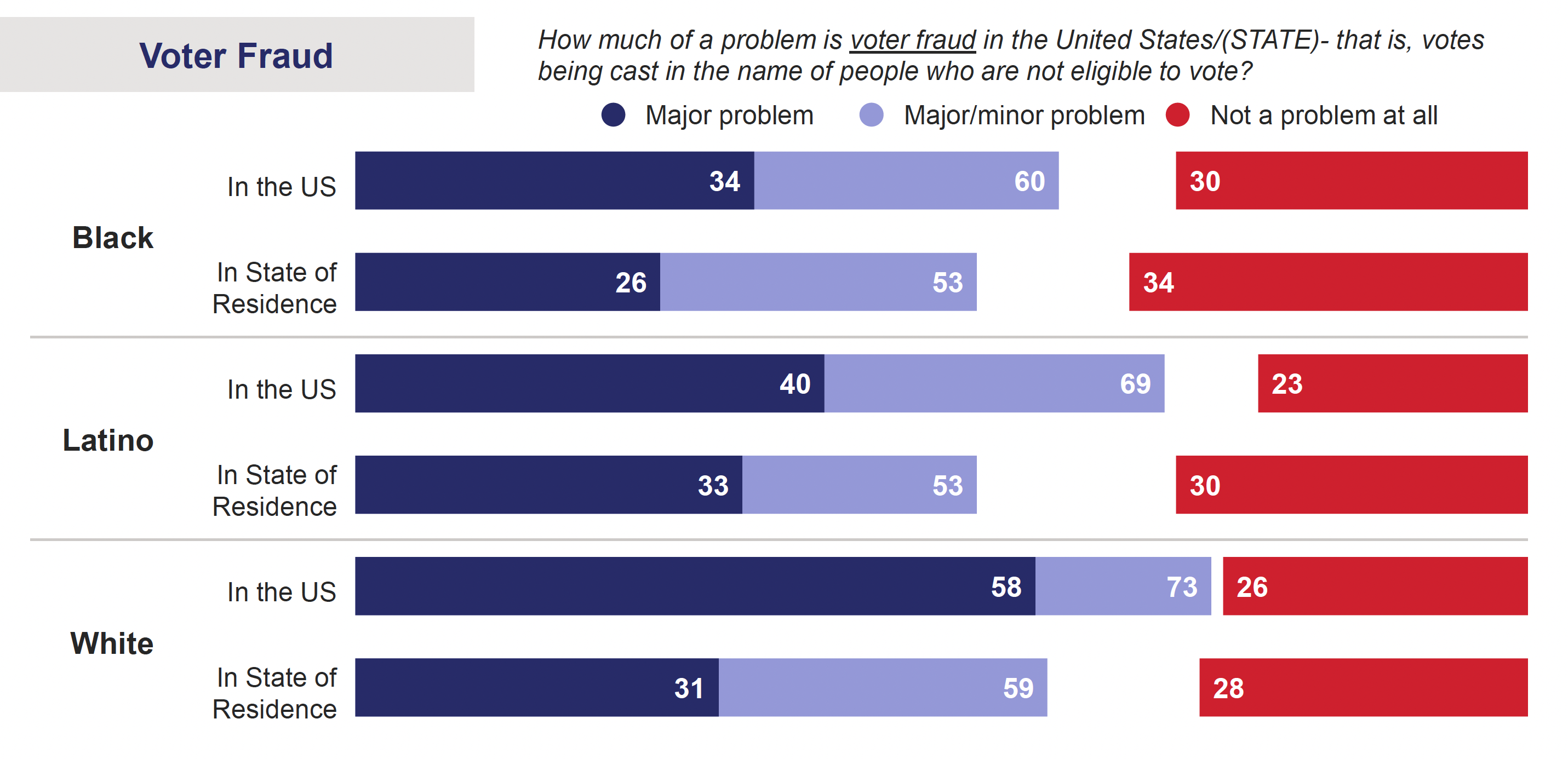
Black Southerners are very concerned about voter suppression at all levels, while Latino Southerners are more worried about national than local.
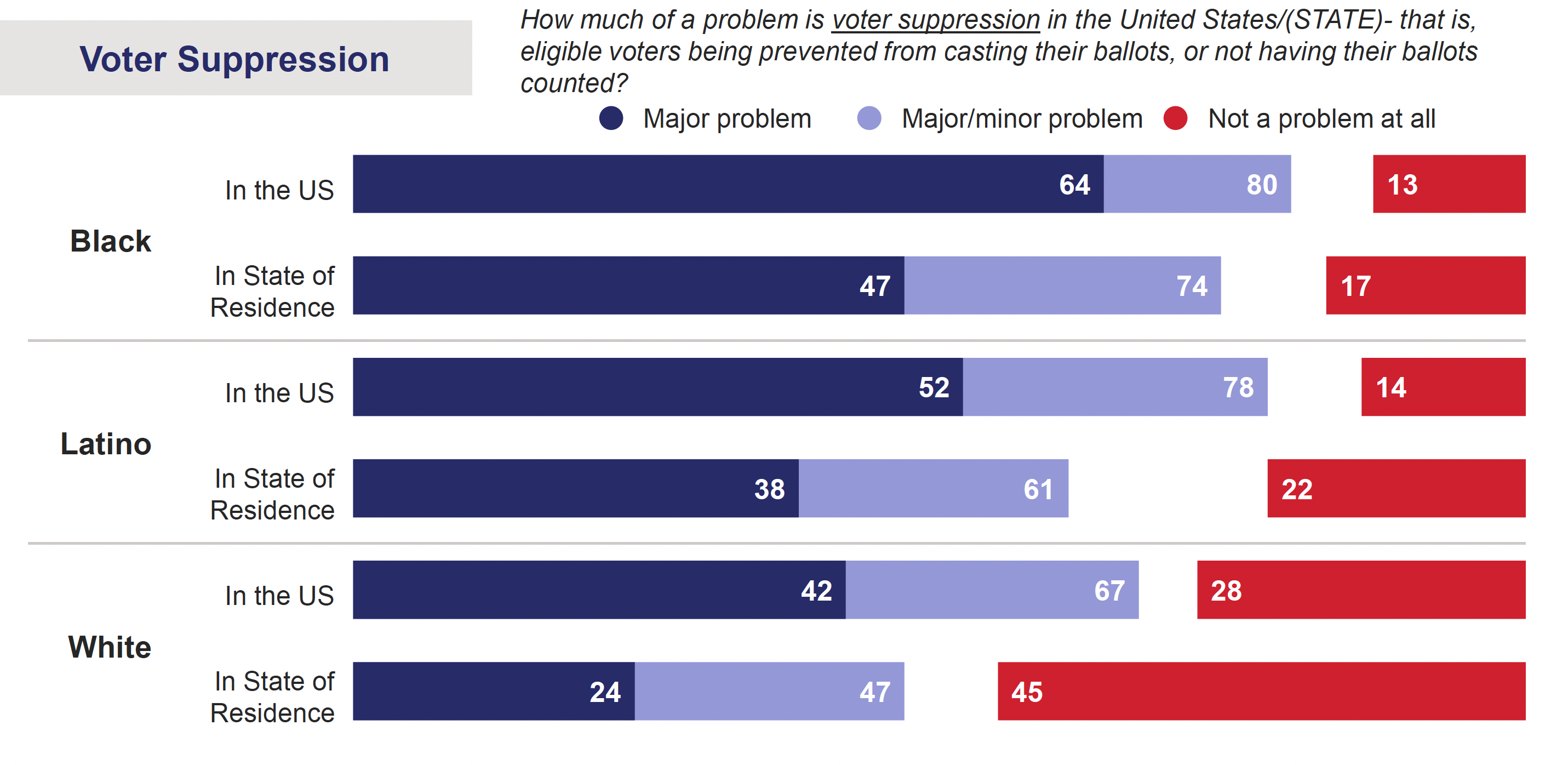
While making it easier to vote by mail generates some racial divide, there is strong support across races for expanded early voting in person.
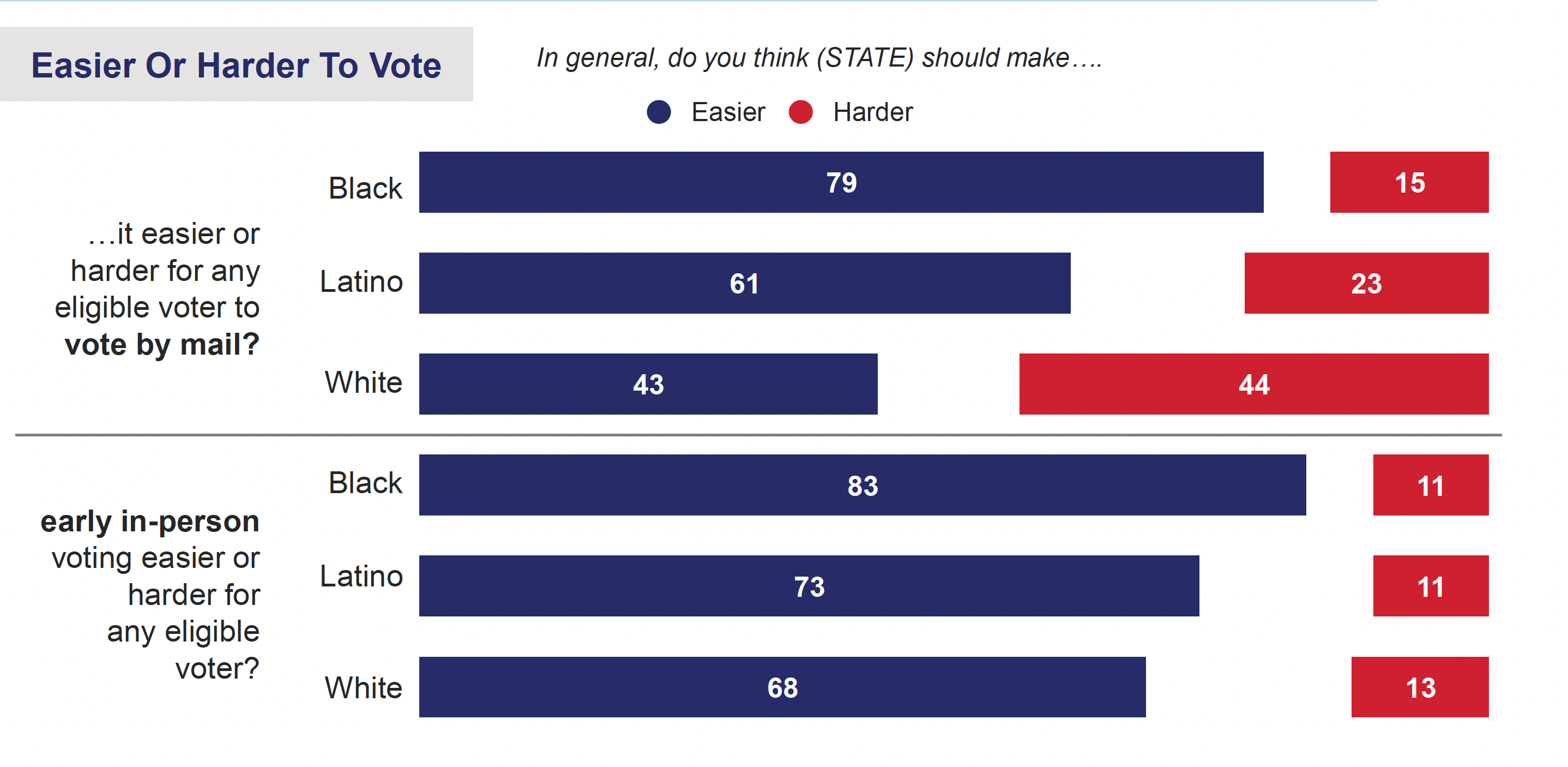
Police Reform
Past surveys have found broad support for numerous police reforms. Today, when asked if lawmakers have done enough to address the killing of unarmed Black people and other people of color by police officers, Black and Latino respondents agreed that not enough has been done to date. Unfortunately, now more than half of white adults, especially older white adults, are now satisfied that enough has been done, despite minimal policy progress.
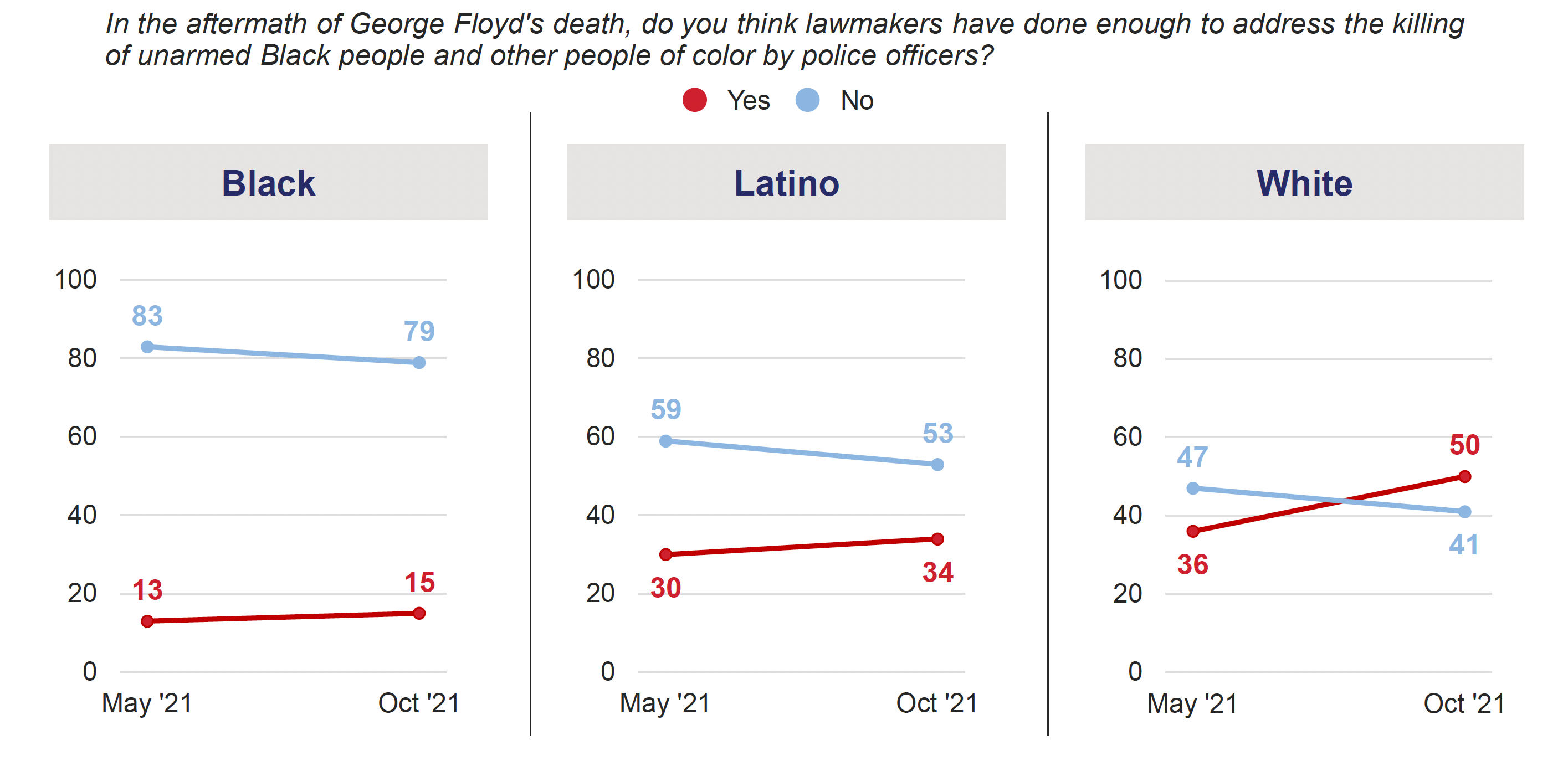

There is also a growing racial gap on the question of who is responsible for the deaths of Black men and women in police custody. A growing number of Black Southerners blame a racist police system while a growing number of white Southerners blame the actions of the victims who are in custody. Latino views remained mixed.
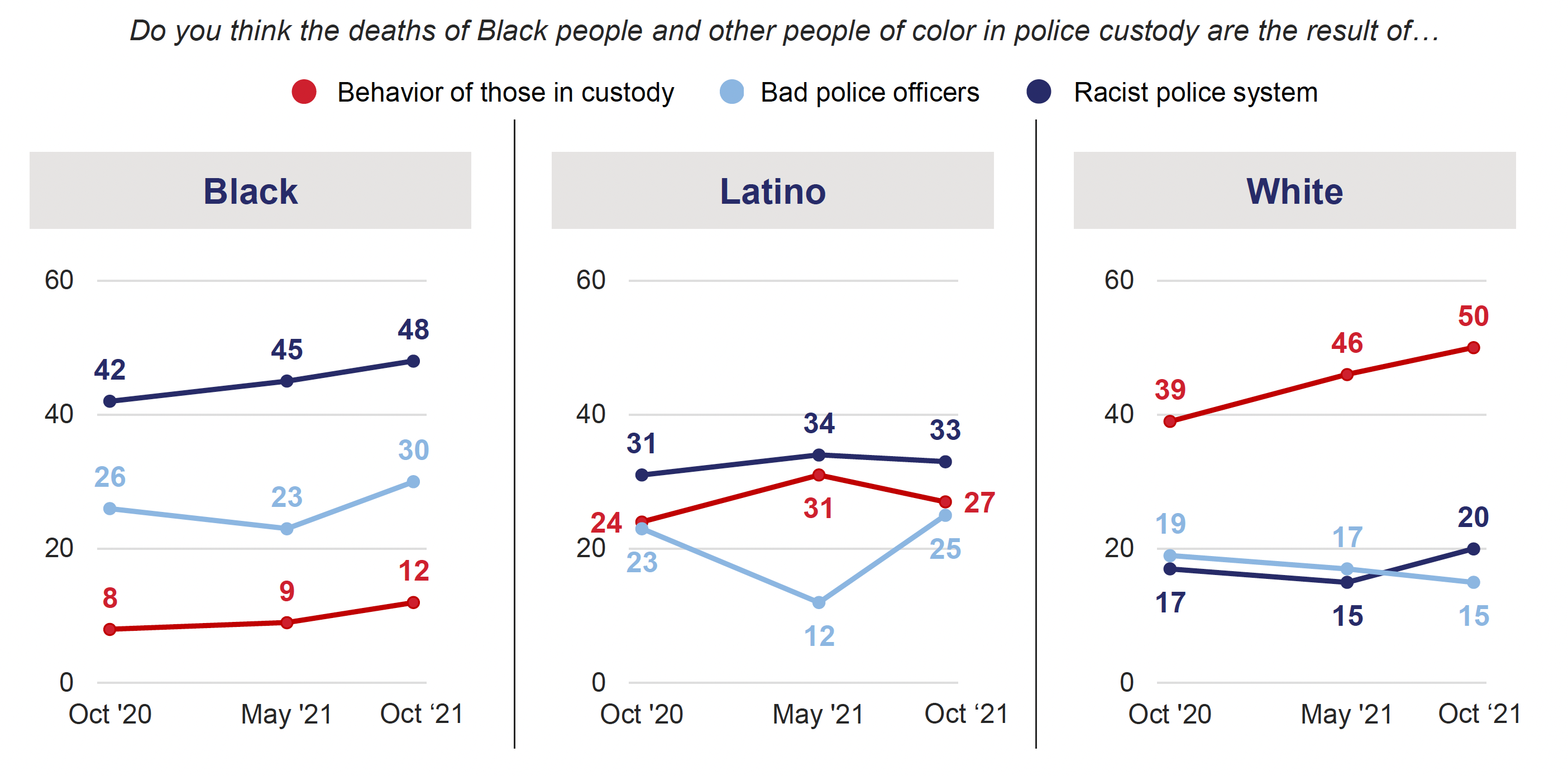
GBAO conducted a survey of 1,800 white, Black, and Latino adults in the South via landlines, cellphones, online panel, and text -to -web from October 6 -15, 2021. Latino respondents were given the option of taking the survey in English or Spanish. The margin of error for each racial group is +/ – 4.0 percentage points at the 95 percent confidence level.
